A Crimean Tatar journalist released from russian captivity calls for preparations for the de-occupation of Crimea and support for imprisoned colleagues.
“Prepare suitcases, supplies, and any necessary things that will help you in the event of a military operation. Whether it happens or not, be ready for it. Most likely, it will happen,” said Nariman Celal to the residents of occupied Crimea immediately after his release from russian captivity.
The first deputy chairman of the Mejlis of the Crimean Tatar people and journalist Nariman Celal (Dzhelyal) spent almost three years in russian captivity. His story is a vivid example of politically biased persecution by the occupation authorities and, at the same time, a symbol of invincible spirit and devotion to one’s principles.
“Why did you go to the Crimean Platform?”
Nariman Celal was born in the city of Navoi in Uzbekistan in 1980. That was the place his relatives were exiled during the deportation of the Crimean Tatars in 1944. In 1989, when Nariman was nine years old, his family returned to Crimea.
Having obtained the education of a political scientist at Odesa National University, Celal actively participated in the public and political life of the Autonomous Republic of Crimea. He worked as a journalist, hosted programs on the Crimean Tatar TV channel ATR, and taught history and jurisprudence. Since 2013, Celal has been the deputy chairman of the Mejlis of the Crimean Tatar people.
After russia’s occupation of Crimea in 2014, Celal remained on the peninsula, continuing to defend the rights of the Crimean Tatar people and speak out against the occupation.
On September 3, 2021, employees of the FSB of the russian federation conducted a search at Nariman Celal‘s house. He was detained together with four other Crimean Tatars – Eldar Odamanov, Asan and Aziz Akhtemovs, and Shevket Useinov.
Celal and the Akhtemov brothers were accused of blowing up a section of the gas pipeline that happened near the village of Perevalne near Simferopol on August 23, 2021. However, the real reason for the arrest was Celal‘s participation in the first summit of the Crimean Platform in Kyiv. As the journalist himself recalled, during the interrogation, he was directly told: “Why did you go to the Crimean platform?”
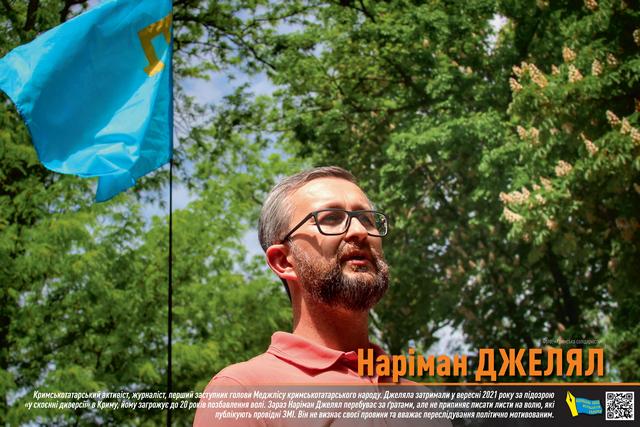
“The investigators and the court neglected the law and conscience”
According to Celal, he and other detainees were tortured. They were electrocuted and psychologically pressured. Asan Akhtemov was forced to give false testimony against himself and others.
“I was put on a chair with my face to the back; my legs were taped to the legs, my hands to the back. Wires were put on the ears, very thin – they felt like threads. I felt that I was being hit with an electric current – the current discharge lasted for 10 seconds, then they stopped and started again, they did it 6-7 times,” Asan Akhtemov later recalled.
During the trial, it became obvious that the case was fabricated. The only “evidence” was the testimony of three classified witnesses, which were easily refuted. No objective evidence of the involvement of Celal and the Akhtemov brothers in the gas pipeline explosion was presented.
Despite the lack of evidence, on September 21, 2022, the russian-controlled “Supreme Court of Crimea” sentenced Nariman Celal to 17 years of imprisonment in a high-security prison with a fine of 700,000 rubles. Asan Akhtemov received 15 years of strict regime prison and a fine of 500,000 rubles, Aziz Akhtemov – 13 years of strict regime prison and also a fine of RUB 500,000.
In his final statement in court, Nariman Celal said: “The charges against me and my friends are far-fetched and politically motivated. The materials of the criminal case, the testimony of the witnesses, and the accused themselves give an objective and impartial court a hundred percent opportunity to make a decision on the termination of this criminal case. The court had every reason to recognize most of the submitted evidence as inadmissible, but it did not do so… We have already made sure that the investigators disregarded the law and conscience in their work.”
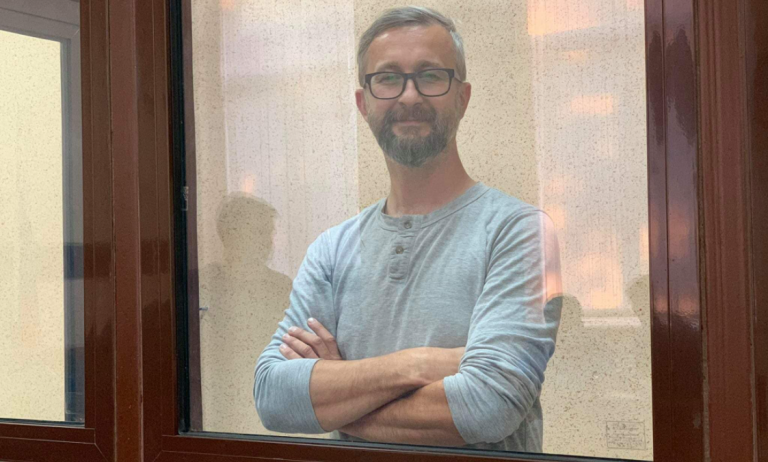
Celal was taken to prison in Minusinsk, Krasnoyarsk Krai. His wife Leviza said: “The new detention center clearly concentrates prisoners on political charges (in particular, extremism, terrorism, sabotage, treason, participation in volunteer battalions) and detained residents of the Kherson and Zaporizhzhia Regions.” Due to the harsh conditions of confinement (the need to stand on his feet from 6 to 10 p.m. without being allowed to sit or lie down), Celal developed swollen feet and varicose veins on both legs.
Despite the difficult conditions, Leviza, who had the opportunity to visit him, emphasized: “Nariman is just as calm and unmoved, morally stable. Despite all the difficult tests to which he is subjected illegally and unfairly, dignity and greatness remain unshakable by force of will.”
“Attention to the fate of journalists in captivity is the key to liberation”
On June 28, 2024, it became known about the release of Nariman Celal as part of a prisoner exchange. That day, the President of Ukraine, Volodymyr Zelenskyy, announced the return of 10 Ukrainians from russian captivity.
Immediately after his release, Nariman Celal declared his readiness to join the process of freeing other Ukrainian prisoners of the Kremlin. “I am personally ready to join from now on to bring them home as soon as possible,” Celal said. He also called on the residents of Crimea to prepare for the de-occupation of the peninsula: “I want to appeal to the residents of Crimea: be careful, understand that life there is not normal. And you have to prepare for what will happen.”
On August 19, 2024, Nariman Celal visited the National Union of Journalists of Ukraine. He emphasized the importance of public attention to the fate of journalists who provided informational resistance to the occupiers:
“Your attention and the attention of our society to the fate of journalists who made real informational resistance to the occupiers, who performed, I can say, a feat, is a guarantee that at least one more journalist’s name will be added to the list of those who will be released,” he emphasized Celal.
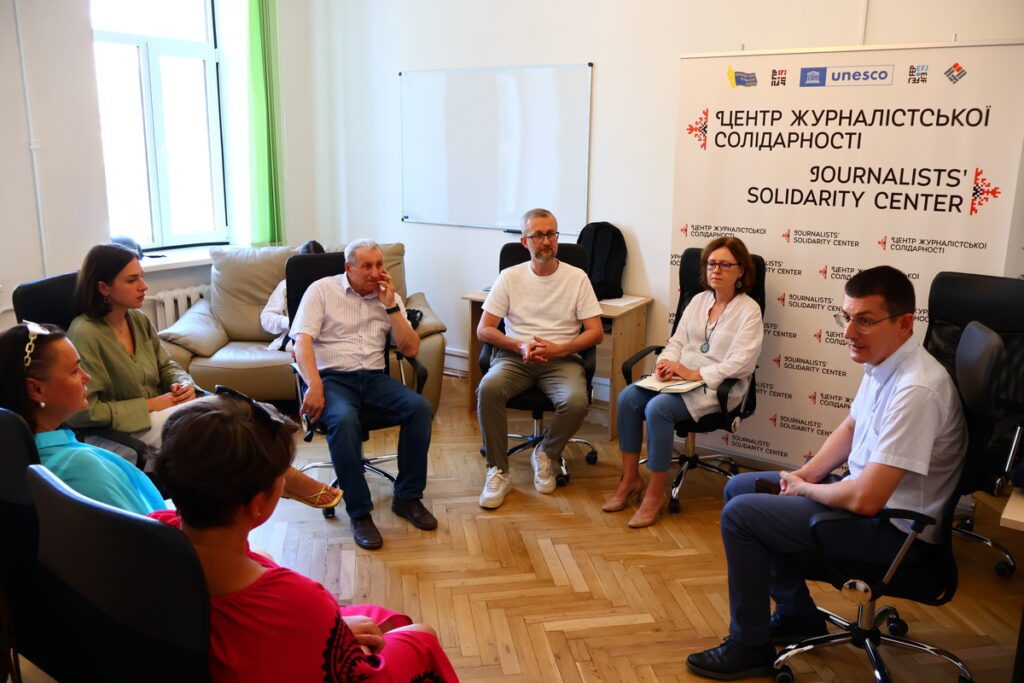
He also noted that the status of a journalist increases the chances of dismissal: “Believe me, there are no specific risks for journalists. There are risks for any of our prisoners.”
Nariman Celal believes that the biggest challenge for Ukraine after de-occupation will be the return of Crimean residents to the “Ukrainian mental space.”
“Many residents of Crimea want to return. Some definitely want it. Some would like to hear clear answers from the Ukrainian state about what exactly they will do. All this should be discussed and explained so that people are ready for it. But the main message is that “we are glad and want your return; we will help you.” Ukraine should say it,” he said.
According to NUJU President Sergiy Tomilenko, the story of Nariman Celal is a story of an invincible spirit, devotion to his principles and struggle for the truth. It reminds us of the importance of supporting those who continue to fight for freedom under occupation and of the need to make every effort to free the Ukrainian prisoners of the Kremlin.
“The NUJU demands the immediate and unconditional release of all illegally detained Ukrainian journalists,” emphasizes Sergiy Tomilenko. “Every day of their stay in captivity is a blow to freedom of speech and basic human rights. We call on the international community to increase pressure on the russian authorities and use all possible diplomatic channels for the release of our colleagues. Journalists should not be held hostage in this war. Their job is to reveal the truth, not to suffer for it in prisons.”
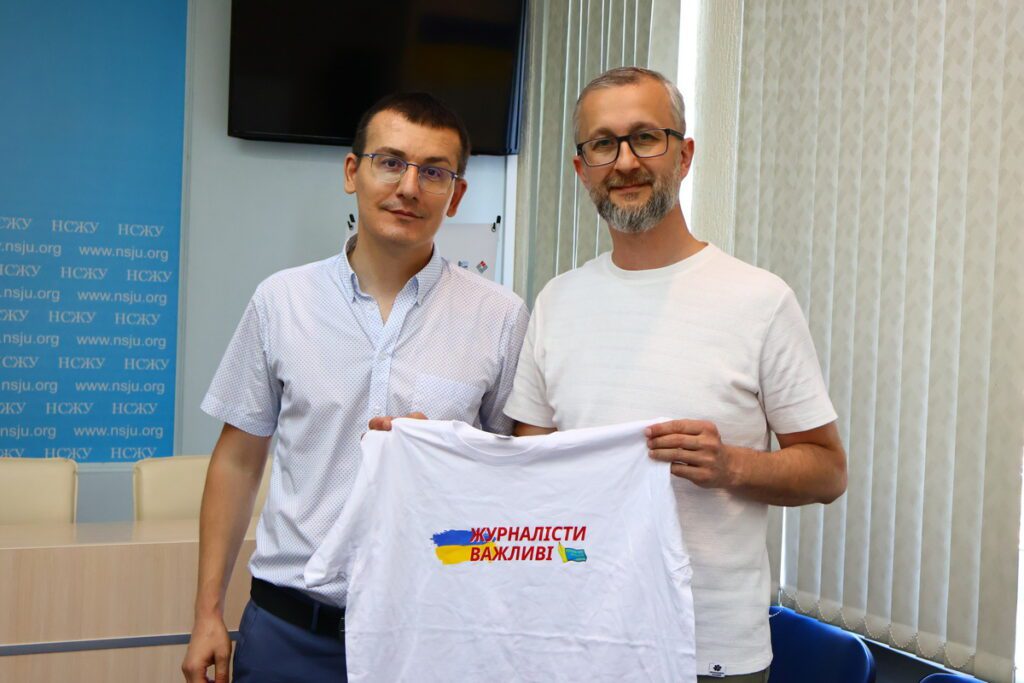
Created as part of the project “Raising awareness among target groups in Ukraine and abroad about Russian war crimes against journalists in 2024 and increasing public pressure for the release of captured journalists”, which is implemented by the National Union of Journalists of Ukraine with support of the Swedish non-profit human rights organization Civil Rights Defenders.
NUJU Information Service

 THE NATIONAL UNION OF
JOURNALISTS OF UKRAINE
THE NATIONAL UNION OF
JOURNALISTS OF UKRAINE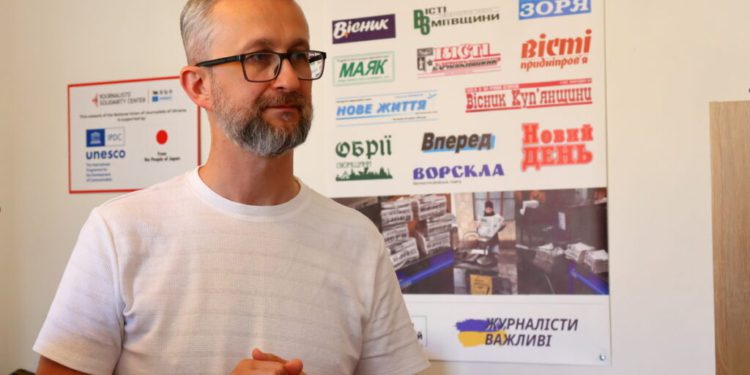
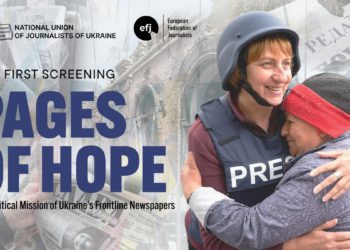

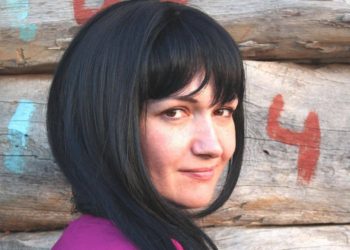













Discussion about this post